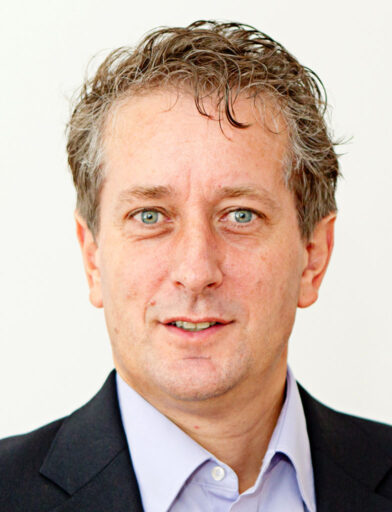Campaign Against Guardian and Other Unregulated Media
Embargoed until 08.00 UTC on Tuesday, November 28, 2023

Today’s news media has never been bigger, easier to access or more influential.
And key to the public’s faith in its honesty and reliability is the notion that it is fairly but rigorously regulated.
Newspapers, television and radio all have their own regulatory bodies that ensure the content they produce is fair and accurate, while administering swift justice if these rules are broken.
But some media outlets feel the rules shouldn’t apply to them, and refuse to belong to any regulatory body.
Not, it seems, because they are wild, reckless rebels. It’s because they consider themselves so perfect, so wholesome, that they couldn’t ever get anything wrong. But what happens when they do get something wrong, and there are no regulators to rely on?
The answer is a campaign starting today that originated in an eight-year legal battle by British journalist Michael Leidig after one of these unregulated media organisations, BuzzFeed UK, made wholly false allegations that his international agency peddled fake news. This allegation was repeated by The Guardian and followed up by other unregulated media based entirely on the false BuzzFeed story which, Leidig found out later, had been simply cut and pasted from the internet and crammed together to fit a dreamed-up headline.
The high-minded Guardian, while happy to lecture the rest of Fleet Street on the morals of the press, is not a member of either of the UK print media’s regulatory bodies, as Mike Leidig found out when he sought corrections and clarifications to halt a relentless campaign to close down his business by these commercial rivals.
Don’t forget this is something that happened to an award-winning news agency owner with a string of world scoops under his belt. Yet even with a list of media partners that is like an ABC of the world’s leading publications, with clueless staff at BuzzFeed and The Guardian among those clients, there was absolutely nothing that could be done.
No apology, no correction, no offer of an enquiry of any sort was offered. And, in the one case where there was an internal investigation at The Guardian, it was made with no chance of evidence being submitted and produced a decision so secret they even apparently forgot to publish it on their own website.
The lucky few that persist are occasionally offered the chance to submit something to the letters page “for consideration”, while the original uncorrected article remains in place for everyone to read.
A real need – A real answer
This entirely unacceptable situation was the launch pad for QC, a service that aims to hold to account these unregulated media who believe themselves above accountability.
It will assess and then handle complaints for anyone who feels they have been dealt unjustly by any media who hold themselves outside of regulatory bodies.
It doesn’t matter if they refuse to cooperate with QC because the case and the evidence will be heard in their absence, and QC will publish the verdict. Quick, simple, transparent and at an infinitely lower cost than, say, a legal letter that will end up in the waste bin.
QC is in beta testing; it offers something that was not available in the eight years that Leidig had tried and failed to get corrections by the Guardian and Observer, and its aim is to make a stand against this one-sided editorial that feels free to call others into question but refuses any criticism of itself.
When that happens, it is no longer journalism; it is activism.
The decision to call the project QC was based on a quote attributed to Socrates. ‘Quis custodiet ipsos custodes?” – who guards the guardians. Ironically, Socrates became one of the first victims of fake news when he was sentenced to death by Athenians over false claims made against him.
It is a fitting title for a project that shares his values.
Leidig said: “I had even worked for The Guardian and BuzzFeed, but they were happy to use that relationship to stab me in the back when it suited them and for the greater good of damaging rivals, and keeping their subscribers coming back for more.
“If that’s how they treat a fellow news professional, then God help any of those subscribers who want to complain, and an ordinary member of the public will have no chance.”
He said a decision last month by The Guardian’s owners, the Scott Trust, to reject a complaint he made about multiple breaches of its own code of conduct was the final straw.
Leidig added: “I wasn’t allowed to offer up any of the 15,000 pages of documents I had gathered in the past eight years, they refused to consider my cast-iron evidence by computer experts that proved my case, and I couldn’t see any statements or transcripts of their discussions.
“In short, they felt I’d had a very fair hanging and now I’d had a trial to go with it.”
From now on, QC offers a challenge to this one-sided dialogue.
Leidig said: “QC will analyse the code of conduct of any unregulated media, we will match it against the story that is complained about, and within a few days we will offer an opinion. This will go some way to quickly correcting injustices, or at least explaining how the media works to those unhappy with a story if we feel it did not breach the code.
QC is not politically motivated. It is also not intimidated by big names. It will be scrupulously fair and will offer help with unregulated media from any branch of the UK market. Don’t be left dangling for eight years.
If you are a victim, get your investigation started today. Visit our web page at mediawatch.report to learn more or support our work.
Notes for journalists and editors
Website: https://mediawatch.report/
Email for queries: mike@cenagency.co.uk
Download a PDF version of this press release

